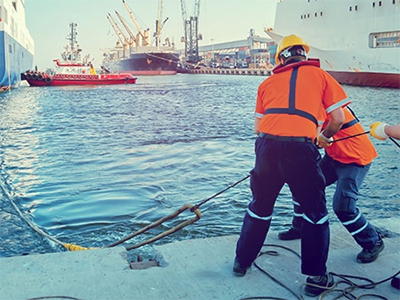Feat. MLC, Seafarers ID Convention and the Fishing Convention
ILO published Compendium of Maritime Labour Instruments‘ book containing its three landmark Conventions adopted for seafarers’ better working and living conditions: the first is one of the International Labour Organization’s most innovative and successful international labour Conventions, the Maritime Labour Convention, 2006 and other related Conventions, the Seafarers’ Identity Documents Convention, (Revised) 2003, and the Work in Fishing Convention, 2007.
1) The Maritime Labour Convention, 2006 (MLC, 2006), which entered into force on 20 August 2013 and at that date already applied to 30 Members with a total share of nearly 60 per cent of the world gross tonnage of ships, is often described as a charter for decent work or a “bill of rights” for the world’s maritime workers and a framework for creating a level playing field for shipowners. Governments, seafarers and shipowners all regard the adoption of this Convention as a landmark development for the world’s most globalized sector.
2) The Seafarers’ Identity Documents Convention (Revised), 2003 (No. 185), reflects important new maritime concerns. Seafarers typically work as part of a multinational crew, for a foreign shipowner on a ship flying the flag of still another country. Ships’ voyages usually take seafarers to several foreign ports, often with short notice. For their health and well-being and to carry out their work, seafarers need temporary admission into the territories of the countries visited: short periods of shore leave after working at sea on voyages that can last up to several months at a time; and permission to transit through a country to join or change ship or to return home (for repatriation).
3) The Work in Fishing Convention (No. 188) and Recommendation (No. 199), adopted in 2007, revise and consolidate five ILO standards concerned with working conditions of fishers. The world’s fisheries are, of course, an essential aspect of human food security: we all rely and will continue to rely on their work. This Convention tackles many of the key challenges in ensuring decent work for fishers: minimum age and medical fitness to work as fishers; fishers’ work agreements; manning of vessels and hours of rest; accommodation and food on board fishing vessels; occupational safety and health and medical care at sea; and social security protection. The Recommendation provides guidance on the implementation of the Convention’s requirements.
Further details may be found by reading ILO’s book (please click at image below)
Source: ILO






























































